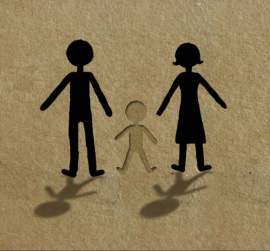
Legal Right for Fathers Explained

Family Forms
Legal Rights for Fathers
A father, who is involved with the creation of life, is given distinct and equal rights to that of the mother. That being said, in most cases, if the relationship is terminated between the father and the mother, the majority of custodial rights will be awarded to the mother. A typical family court, however, will evaluate the character of each parent before delivering custodial rights.
When a child is born out of wedlock, both the father and the mother possess certain legal rights, which vary based on state law. When a man is declared as the father of a child, the father establishes his status as a biological caretaker. In order to retain such rights, it is necessary to meet the definition of the underlying jurisdictions as to what constitutes a “father."
The majority of statutory definitions include men who are listed on the birth certificate of the child, a man who has been determined by the court to be the child’s father, or a man who is referenced in an affidavit by the mother indicating that he is indeed the child’s father.
Once a man has been established as the child’s father, he is delivered the same right to custody of the child as the mother or a married father. As a result of this, Father’s rights establish the entitlement of some form of custody of the child—either shared or full-time depending on the court decision.
Father rights also include the right to visit the child. The issue of child visitation typically arises when the father does not possess custody of the child but seeks to spend time with the child on a part-time basis. In order to obtain visitation rights, the father can either work out details with mother or can petition to a local family court to establish a schedule.
As the father of the child, the individual is also given parenting rights. For instance, the father has a role in the decision-making process regarding the child, from medical to educational issues.
NEXT: Paternity Defined





















